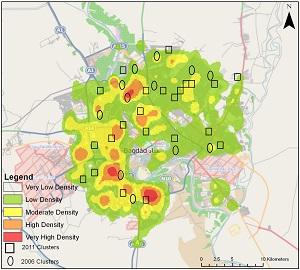Using AI to control energy for indoor agriculture
30 September 2024
Published online 30 October 2013

A half a million deaths in Iraq could be attributable to the war — but not necessarily as a direct result of violence, according to a new estimate of the human cost of the war and occupation in Iraq from 2003–2011.
A team of Iraqi and American researchers surveyed 2,000 randomly selected households across the war-ravaged country, publishing their finding in PLOS Medicine. Poor healthcare, sanitation and other infrastructure failures accounted for 40% of the deaths. Gunshot wounds accounted for 63% of the war-related violent deaths, while car bombs and explosive devices killed 21%.
The study, which included Sahar A. Esa and Berq J. Hadi Al-Yasseri of the Iraq Ministry of Health, is the only one to have investigated war-related deaths after 2006, and which tried to account for additional deaths among migrant Iraqis.
Despite a drop in overall violence, Iraqis continue to suffer. In September 2013, nearly a thousand deaths were reported by the United Nations.
"The public's perception of the number of Iraqi people who died as a result of the war (both combatants and civilians) has been consistently low," said Professor Tim Takaro, one of the authors of the study. "Such misconceptions enable policymakers to obscure the cost of war. If we are to prevent future wars, we need incontrovertible evidence of their human costs."
doi:10.1038/nmiddleeast.2013.195
Stay connected: